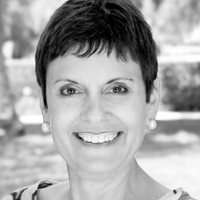Question
I am an education-based SLP in Ontario, Canada, who plays a significant support role in assisting with the paperwork, installation, in-service, and troubleshooting of Audiologist-recommended FM systems for several students (CAP) in our system. We have no on-site educational Audiologist. In order to qualify for provincial government funding assistance, school Boards must complete a 6 month trial period of use in order to prove the student benefits from the provision of an FM system. My question/concern is regarding this required timeline. We feel that trial use for a period of approximately 6 to 8 weeks is sufficient. What is your expert opinion?
Answer
This is an excellent question that can prompt a great deal of discussion. I think that the first issue, or maybe question, is what outcome/results are we expecting the FM to provide? There are potentially both short and long term results. Short term results could include better auditory focus, increased attention span, longer time on task, and fewer disruptive behaviors. Of course, measuring these results can be tricky and may involve videotaping, or at the least, multiple pre-FM use and post-FM classroom observations. In addition, the child in question may have spent many years "practicing" his diffuse focus and disruptive behaviors, so these unwanted behaviors may not disappear over night. Long term results are based on learning and practicing new skills and strategies. New skills could take many months or years to show up as improved learning and performance because we are growing new neural connections in the brain and creating new "data files" of life and language experience. Measurement of new skills could include improved grades, accurate class participation, and higher marks on standardized tests. In addition, tools such as the SIFTER, LIFE and CHILD could be useful.
The second issue concerns expectations. Are we expecting the equipment to solve all of the student's problems....to be the magic bullet? Or, have we targeted a few, critical behaviors that we are expecting the equipment to address. That is, extensive research has demonstrated that signal-to-noise ratio enhancing technology is necessary to create a viable classroom learning environment for students. However, that technology may not be sufficient to address all of the challenges experienced by a child with APD; additional accommodations and therapies may also be required.
So, I guess the answer is complicated because the issues are complicated. I suggest first identifying short and long term desired outcomes of FM use and the tools needed to measure those outcomes. Next, one ought to identify if the equipment is expected to occur with additional accommodations, or instead of any additional accommodations or therapies. What is realistic?
Of course, my opinion is that every classroom ought to have a well-installed and used sound field system as a necessary learning condition for all children. Studies have shown that the universal use of sound field technology reduces the need for special education referrals; the technology nips many potential problems in the bud before they have a chance to blossom, including APD problems.
Thank you for your question, and best of luck with whatever you decide to do.
Carol Flexer, Ph.D., Cert. AVT
Dr. Flexer is a Distinguished Professor of Audiology at The University of Akron. Her areas of expertise include pediatric and educational Audiology. She has over 140 publications in that area and has been at the University for about 27 years.

